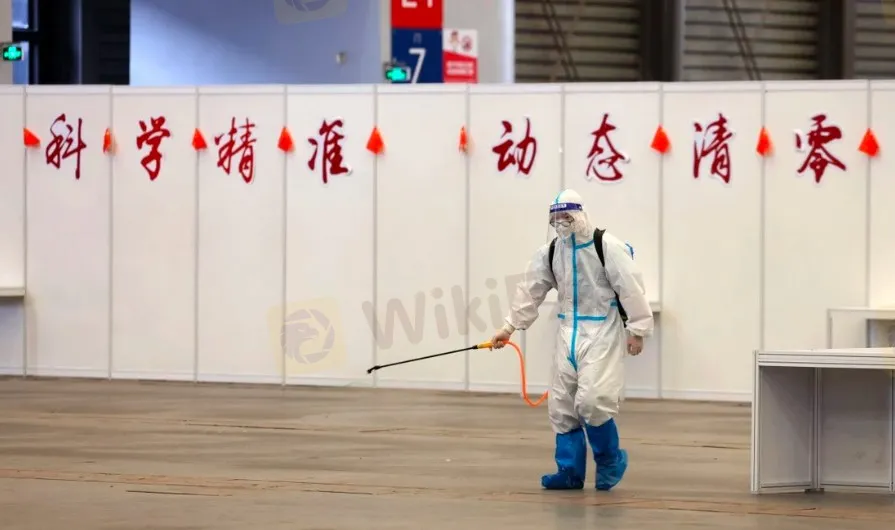简体中文
繁體中文
English
Pусский
日本語
ภาษาไทย
Tiếng Việt
Bahasa Indonesia
Español
हिन्दी
Filippiiniläinen
Français
Deutsch
Português
Türkçe
한국어
العربية
Chinese stocks head for second weekly loss after policy lending rate is left untouched
Abstract:Chinese stocks head for second weekly loss after policy lending rate is left untouched
Industrial and raw-material stocks were among the worst-performing industry groups, retreating at least 1.4 per cent
Chinese stocks capped a second straight weekly loss as investors were disappointed after the central bank unexpectedly left a policy lending rate unchanged, tempering optimism about an immediate loosening of monetary policy signalled by the premier.
The Shanghai Composite Index eased 0.5 per cent to 3,211.24 at the close on Friday, posting a 1.3 per cent loss for the week. Hong Kongs markets are closed through Monday for public holidays.
Industrial and raw-material stocks, which are more sensitive to the economic cycle, were among the worst-performing industry groups, retreating at least 1.4 per cent.
Traders were disappointed after the Peoples Bank of China kept unchanged the one-year rate on the medium-term lending facility, a funding tool for commercial lenders. The central bank also refrained from injecting liquidity into the financial system through open-market operations.That came even after speculation had mounted over further monetary policy loosening, with Premier Li Keqiang strongly hinting at a cut in the reserve requirement ratio (RRR) to stem a moderation in growth in a cabinet meeting this week.
“Given global inflation, chances of a massive loosening of monetary policies in the short term are low,” said Fei Xiaoping, an analyst at Dongguan Securities. “Even if there‘s a cut in the RRR, it will be in the form of a targeted one.”Investors are also eagerly awaiting China’s first-quarter economic data, due on Monday, to assess the impact of the extended lockdown in Shanghai that has already led to a suspension of production at electric-vehicle makers such as Tesla and Nio.Growth in the world‘s second-largest economy probably reached 4.3 per cent in January to March period, according to a survey of economists compiled by Bloomberg, putting in jeopardy the annual target of 5.5 per cent. Xpeng’s chief executive officer He Xiaopeng warned that China‘s car production could come to a halt in May unless the supply chain in Shanghai and its neighbouring region resumes, the latest sign of how China’s zero tolerance of Covid-19 has upended even the nations most upbeat industry.

Disclaimer:
The views in this article only represent the author's personal views, and do not constitute investment advice on this platform. This platform does not guarantee the accuracy, completeness and timeliness of the information in the article, and will not be liable for any loss caused by the use of or reliance on the information in the article.
Read more

7 Days Left!WikiEXPO Dubai 2024 is about to make a stunning debut!
Seeing Diversity Trading Safely

Currency Fluctuations: What It Means When a Country's Currency Rises or Falls
When a country’s currency appreciates or depreciates in value, it reflects the underlying shifts in its economy and global market dynamics. For forex traders, understanding what drives these fluctuations—and how to strategically prepare for them—can make the difference between profit and loss in an ever-volatile market.

Yuan Volatility Surges as US Election Approaches
As US elections near, yuan volatility surges. Traders brace for tariff risks and market swings, preparing for potential economic shifts under Trump or Harris policies.

UAE Approves AED Stablecoin for Digital Transactions
UAE grants approval for AED Stablecoin AE Coin, a regulated Dirham-pegged cryptocurrency, transforming blockchain payments for businesses and individuals in the UAE.
WikiFX Broker
Latest News
AIMS Broker Review
The Hidden Checklist: Five Unconventional Steps to Vet Your Broker
Russia to Fully Ban Crypto Mining in 10 Regions Starting January 1, 2025
YAMARKETS' Jingle Bells Christmas Offer!
Why is there so much exposure against PrimeX Capital?
Two Californians Indicted for $22 Million Crypto and NFT Fraud
MTrading’s 2025 "Welcome Bonus" is Here
FCA's Warning to Brokers: Don't Ignore!
Doo Financial Obtains Licenses in BVI and Cayman Islands
CFI’s New Initiative Aims to Promote Transparency in Trading
Currency Calculator


